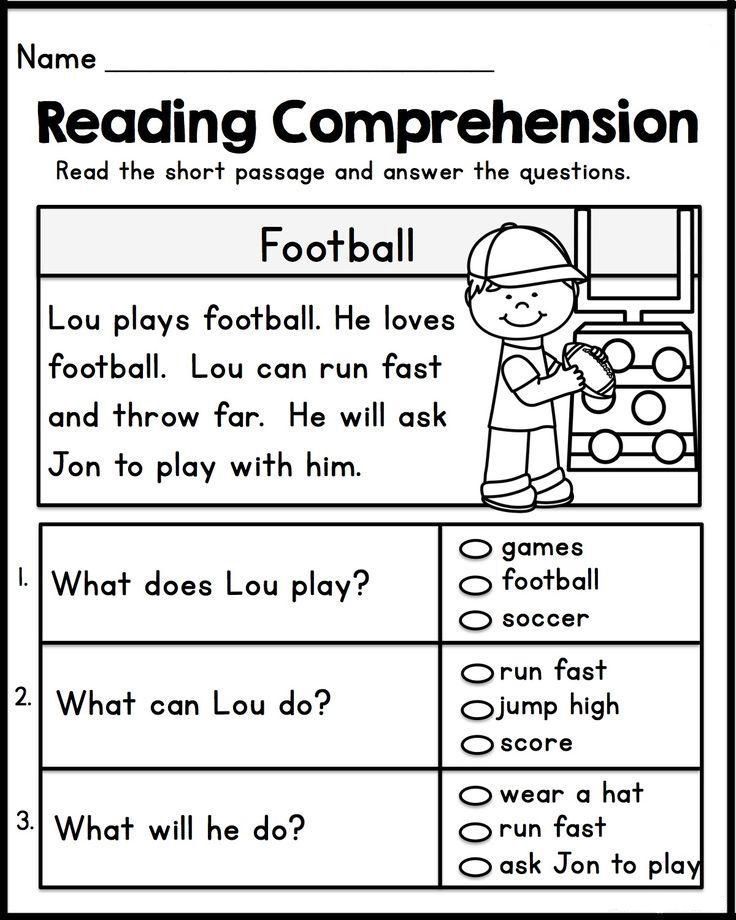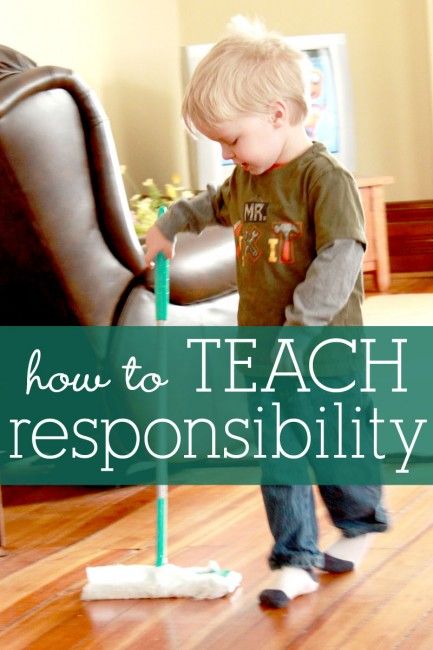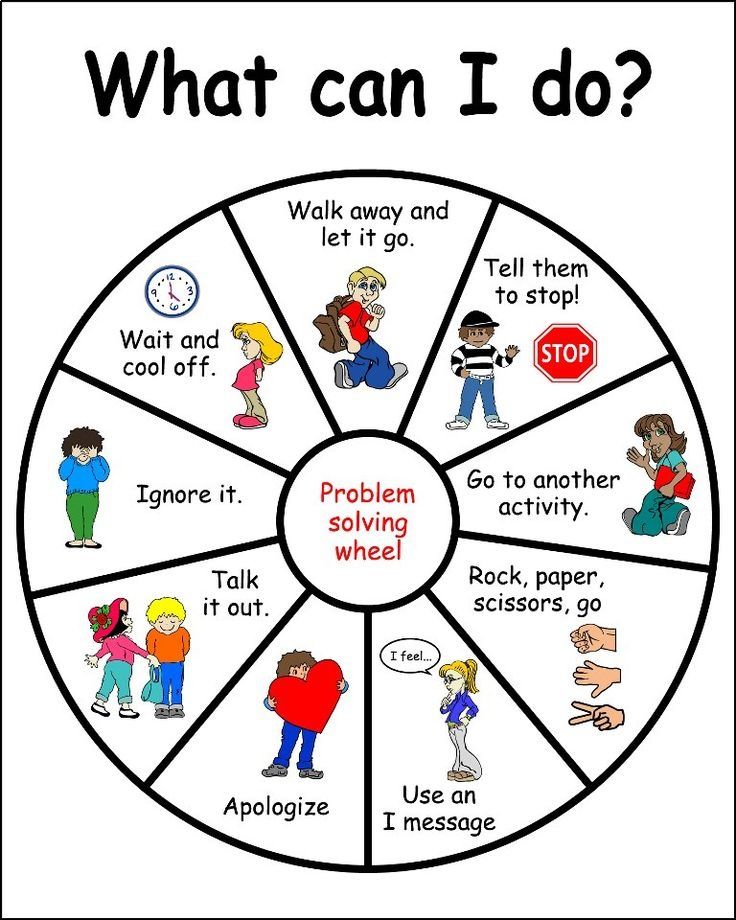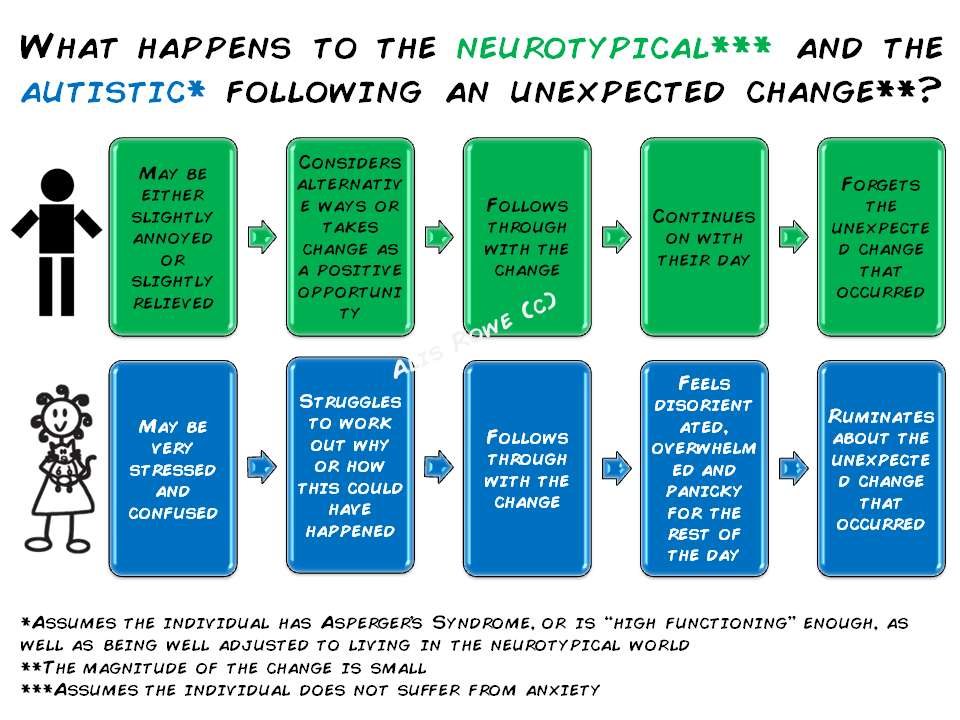How to teach child persistence
Teaching young kids persistence | Parenting
Banging the piano lid shut in a crescendo of rage 10 minutes after practicing new scales. Crumpling up the math worksheet into a small ball of frustration. These are the times that try parents’ souls — those tearful and tempestuous moments when kids simply give up.
If these episodes are hard for parents to witness, consider how our children feel. They are trying something new and difficult and — in their minds — failing. In truth, this is an ideal teachable moment, when we can help our children understand that, no matter how new or difficult, challenges are achieved through patience, practice, and effort.
“Perseverance, or work ethic, is one of the most highly correlated traits of success,” says child educational consultant Michele Borba, the author of The Big Book of Parenting Solutions. Persistence is something children need to succeed in school and life. A 2007 paper from the Journal of Personality and Social Psychology found the ability to persevere may be as essential as talent or IQ to succeed. The good news? Persistence is a trait that can be taught and learned. It’s just a matter of knowing how to help your children — and not giving up on them when they give up on themselves.
Talk about it
Elementary school-age kids benefit from regularly hearing about persistence. So teach them different ways to talk about problem-solving: “I won’t quit,” “I can do it,” and “It’s always hardest the first time, but it will get easier.” Borba also suggests coming up with a household “stick with it” mantra, explaining that families that maintain an overall attitude of “We can do it” tend to face obstacles and mistakes with grace and ingenuity. Some favorites: “Mistakes don’t get us down” and “The family that doesn’t quit!” Finally, tell stories either from your own life or read to your child about succeeding despite the obstacles. The all-time “I can do it” early-reader classic? The Little Engine That Could.
Resist rescuing
When we see our kids having a hard time because they aren’t succeeding, it’s tempting to jump in to make it all better. But remember: We learn by trial and error. By giving kids a chance to fail, we also give them the pleasure of succeeding on their own. The next time your children have a problem and ask you to solve it, don’t. Instead, sit down and ask them to think of a solution. This gives your kids time to cool down and teaches valuable problem-solving skills. And while it’s tempting, when playing games — be it Chutes and Ladders or old maid — refrain from letting children win just because they’ll be unhappy if they don’t. Playing fair and square teaches the important life lesson that, in games as in life, sometimes you’re going to fail before you win.
But remember: We learn by trial and error. By giving kids a chance to fail, we also give them the pleasure of succeeding on their own. The next time your children have a problem and ask you to solve it, don’t. Instead, sit down and ask them to think of a solution. This gives your kids time to cool down and teaches valuable problem-solving skills. And while it’s tempting, when playing games — be it Chutes and Ladders or old maid — refrain from letting children win just because they’ll be unhappy if they don’t. Playing fair and square teaches the important life lesson that, in games as in life, sometimes you’re going to fail before you win.
Nurture a hobby
Children who have a passion learn the pleasure of practicing and improving at something they love, says Borba. Support your children’s interests. Help them check out books at the library on subjects they love. Not only are they learning firsthand the value of mastering something through effort, they may also be preparing for their adult vocation.
Watch out for the “I can’t do it” triggers
Do your kids seem to blow up at a certain time of day? Often, says Borba, kids get frustrated and give up at a task simply because they are tired, hungry, or just need some time to unwind. So make sure your children are well fed, get enough sleep, and have a chance to play before settling down to a chore or homework. By explaining that they’re strengthening their minds and bodies to be ready for the task at hand, young kids will learn to fortify themselves before turning to a challenge.
Remember: Young kids often blow up when they can’t get something right. Avoid recrimination (“I told you this would be hard”) or reacting with your own, sometimes justifiable, anger (“Don’t yell at me just because you can’t do your spelling!”). If you lose your cool, walk away for a moment. Also, suggest your children take a break — running around the house to “get the angries out” — then return after calming down.
Push them … just a little
This is one of the trickiest but most essential ways to work out children’s persistence muscles. It’s tempting for older kids who do something well to stay in their comfort zone and never venture beyond that point. Push them to try just a little bit harder next time. For this purpose, kitchen timers are a parent’s best friend. So if your kids practiced their music for 10 minutes this week, set the timer for 15 minutes the following week. Don’t forget to offer words of encouragement: “You did great practicing 10 minutes. Let’s see if we can make this a little more challenging for you.”
It’s tempting for older kids who do something well to stay in their comfort zone and never venture beyond that point. Push them to try just a little bit harder next time. For this purpose, kitchen timers are a parent’s best friend. So if your kids practiced their music for 10 minutes this week, set the timer for 15 minutes the following week. Don’t forget to offer words of encouragement: “You did great practicing 10 minutes. Let’s see if we can make this a little more challenging for you.”
But don’t make the expectations
too greatWhile you do want to encourage kids to try harder, don’t make your expectations exceed their ability to succeed. If you see your children failing more often than not and feeling the sting of disappointment every time, ask yourself if you are setting the bar too high. Is the soccer team too advanced for your kids? Are you so much better at Scrabble Jr. that your children can never win? If the answer is yes, it’s time to lower the bar so your children experience just the right challenge.
Remind them of their successes
“I’ll never be able to do it!” Chances are you’ve heard your children utter this mournful cry of defeat. At times like these, make kids the hero of a story. Remind them of the triumphal times they had trouble doing well at something but kept their eyes on the goal and succeeded. “Remember when you were terrified of swimming but stayed with your lessons and ended up loving them?” This kind of pep talk is often just what kids need to try, try again. And when your children hang in there, point it out. “You stuck with your homework even though it was hard. You should be really proud.”
Raise your child to try and try again!
I'm willing to bet that many geniuses have gone to their graves unaccomplished because of their inability to persist in the face of adversity. All of us have days when things look bleak, when it’s hard to find the energy to persevere. But persevering may determine our chances of success more than any other single characteristic.
If you read about Nobel Prize winners, they all have different stories. But they share one thing: the people who know them always describe how that person never gave up. A two year scientific experiment can fizzle, and that scientist will be back in the lab the next morning, figuring out what they can learn from whatever went wrong.
Some parents wish their child was less persistent, especially during the toddler years. But persistence is a wonderful trait in a human being. It's essential to accomplishing what you want to in life.
So if you're lucky enough to have a persistent child, I'm hoping this article will help you re-frame that sometimes challenging characteristic into a strength. And if your child isn't naturally persistent, I'm hoping this article will support you with effective ways to encourage your child in going after what he wants.
Most psychologists -- and virtually all parents -- agree with temperament expert Stella Chess that perseverance is an inherited trait. But there is also evidence that children can be raised to be more persistent. Experience is a wonderful teacher. Kids who persist successfully tend to keep persevering.
But there is also evidence that children can be raised to be more persistent. Experience is a wonderful teacher. Kids who persist successfully tend to keep persevering.
What can parents do?
1. Reward persistence.
Recognize and point it out when your child works at something, regardless of the result. Cheer when they don't give up, even when what they won't give up is their argument with you. That doesn't mean you give in to the argument. It means you applaud their persistence and find a win/win solution that works for both of you. For instance, if your child wants to do something NOW, maybe he'll settle for doing it another time, if you make a firm date, put it on the calendar, and fantasize with him about how terrific it will be.
2. Aim your child at a door, not a wall.
If you have the kind of child who never gives up, she may routinely beat her head against the wall (or make you want to beat yours. ) To avoid that, teach her to look for the openings. For instance, teach and model that if she finds solutions that work for both people, she's more likely to get what she wants. Instead of seeing other people as obstacles to what he wants ("That other kid always gets the lead in the school play"), empower him to see that he is always in charge of himself and can keep working until he reaches his goal ("You have a role too....If you play that role as well as you can, you'll get a bigger role in the next play.")
) To avoid that, teach her to look for the openings. For instance, teach and model that if she finds solutions that work for both people, she's more likely to get what she wants. Instead of seeing other people as obstacles to what he wants ("That other kid always gets the lead in the school play"), empower him to see that he is always in charge of himself and can keep working until he reaches his goal ("You have a role too....If you play that role as well as you can, you'll get a bigger role in the next play.")
3. Expect your persistent child to resist you at times.
If your child has the courage of his convictions, then he wants what he wants and he isn't necessarily open to alternatives. That's okay. As he gets older, he'll gain flexibility. Just expect more tantrums than usual during the toddler years.
4. Find win/win solutions.
Your persistent child is on a mission. If you want her to work with you on your agenda, it will help enormously if she feels you're willing to work with her on her agenda, too. Controlling parenting, research shows, always creates rebellion. But with persistent kids, it's especially important to teach your child how to identify each person's key need and find a solution that both of you can live with. If you weren't taught how to do this as a child, it's a lot of work--but a valuable life skill for both of you.
Controlling parenting, research shows, always creates rebellion. But with persistent kids, it's especially important to teach your child how to identify each person's key need and find a solution that both of you can live with. If you weren't taught how to do this as a child, it's a lot of work--but a valuable life skill for both of you.
5. Help with transitions.
Kids who are persistent usually have a harder time with transitions than other kids. So come up with a plan to support your child and make both of your lives easier. Minimize the number of transitions in her day. Build them into routines so she comes to expect them. Connect with her before you ask her to make a transition. Help her take something with her from one situation to the next (so if she's playing with her animals, maybe one joins her as you head to the grocery store.) Always give warnings and prepare her emotionally.
6. Let him grieve.
Persistent kids have big feelings. They will pass sooner if you acknowledge, with empathy, what he wants and why he wants it, and at the same time set firm limits. The firmness of your limit removes any possibility that hounding you will get him what he wants, so that he has no choice but to feel his disappointment. That means he may erupt with grief, but that's a good thing; if you can stay understanding, he'll show you his disappointment and learn the resilience to survive disappointments in the future. "You really wish you could have that....It looks like so much fun to play with....You're so disappointed I'm saying No...And the answer is still definitely No. I'm sorry we can't buy it today, but that's for a special occasion, like your birthday." Be aware that he might still have a meltdown and he might even continue his meltdown all the way home. People may stare. That's okay. He'll learn that he doesn't always get what he wants, but he gets something better--a parent who understands.
They will pass sooner if you acknowledge, with empathy, what he wants and why he wants it, and at the same time set firm limits. The firmness of your limit removes any possibility that hounding you will get him what he wants, so that he has no choice but to feel his disappointment. That means he may erupt with grief, but that's a good thing; if you can stay understanding, he'll show you his disappointment and learn the resilience to survive disappointments in the future. "You really wish you could have that....It looks like so much fun to play with....You're so disappointed I'm saying No...And the answer is still definitely No. I'm sorry we can't buy it today, but that's for a special occasion, like your birthday." Be aware that he might still have a meltdown and he might even continue his meltdown all the way home. People may stare. That's okay. He'll learn that he doesn't always get what he wants, but he gets something better--a parent who understands. Eventually, your kid will be the one who achieves big dreams against all odds, because only persistent people can do that.
Eventually, your kid will be the one who achieves big dreams against all odds, because only persistent people can do that.
7. Practice stopping.
Kids who are persistent often can't stop themselves when they really want something. They need our help to let something go. Younger kids will often need to cry before their good mood is restored. Give them practice "stopping" by playing games like "Mother May I?" and "Simon Says" and be sure you're doing Preventive Maintenance to help them be more flexible. With older kids, agree in advance what they can do to transition emotionally. For instance, come up (together) with a secret code that you can use when she is really going too far and just needs to stop and regain her equilibrium. (Don't overuse this code word, or it will lose effectiveness!) Agree on what she will try to do to calm herself when she hears the special code word, and how you can help her. For instance, maybe she just needs to retire to her favorite Cozy Corner and read her favorite book or listen to an audio book, to shift gears. Then (after warning her), practice.
Then (after warning her), practice.
8. Practice makes perfect.
Many kids worry that they aren't good enough, which makes them give up easily. Help your child understand that no one becomes accomplished overnight. All experts have worked for years to accomplish excellence in their field. Encourage effort and practice, more than accomplishment. Here's a brush up on effective praise. Kids who are perfectionists, or who seem apprehensive about trying anything new often benefit when parents change how they're encouraging or praising.
9. Offer emotional support.
If your child wants to quit three weeks into the dance class, listen to why. Maybe it just isn't what she thought it would be and she'd rather do soccer than ballet. That's fine; part of finding our passions is to experiment. But if she wants to quit everything she starts, then something is getting in her way, and that something is almost certainly fear. She needs your help to work through her fear, or it will begin to pervade other areas of her life, and you'll find her shrinking back from trying new things in general.
She needs your help to work through her fear, or it will begin to pervade other areas of her life, and you'll find her shrinking back from trying new things in general.
So help her work through those fears by playing with her about them, for instance, by playing dance class at home. Let her be the teacher while you're the student. Bumble and let her giggle at what a terrible student you are. Seeing someone who just can't do anything right will help her feel better about her own lack of perfection.
If playing isn't enough and she needs to do some crying, that's okay too. Tell her that she needs to finish the six weeks of the class, and you're sorry it's so hard. If you've done enough playing, her feelings will be close enough to the surface that she'll probably cry. That's good -- exactly why you set the limit that she needs to stay in the class. A good cry may be all she needs to walk into the next class feeling more courageous, and come out feeling even better.
What if she cries about it a few times and still doesn't want to go back? Then maybe there's more going on than you realize. Is the teacher somehow scaring her? Is there something happening that's upsetting? But most of the time, once kids laugh and cry about it, they go happily -- and often, once they're past this hurdle, they end up loving it and wanting to do more. But even if she doesn't, she'll have learned something positive about her own inner resources.
10. Model perseverance.
Show your child how a person can set out to master something and move through setbacks to do so. Talk about your feelings as you do it. "I tried it this way. That didn't work. Now I am going to try it that way. I don't give up easily."
11. Stay connected.
If you have a persistent child, it's a matter of integrity to her not to quit. So if there is something she needs to give up on (whether it's your toddler going after that breakable across the room, your preschooler running away from you in the parking lot, or your elementary schooler shouting out answers in class) give her something she wants even more to go after instead. Usually, what kids want most is that warm, rewarding relationship with mom and dad, as long as you work to re-connect, especially when you've felt worn down and angry.
Usually, what kids want most is that warm, rewarding relationship with mom and dad, as long as you work to re-connect, especially when you've felt worn down and angry.
12. Teach your child to take a break.
As Albert Schweitzer said, "A man can do only what a man can do. But if he does that each day he can sleep at night and do it again the next day." Teach your child to monitor his mood and take a break when he needs to. "We're both getting frustrated, so let's take a break. We'll tackle this again tomorrow." Sooner or later, he’ll make a break-through, and it’s not a bad idea to stop before he gets too frustrated.
"Success seems to be largely a matter of hanging on after others have let go."
--William Feather
Want more? See: Parenting Your Strong-Willed Child
How to teach a child to be persistent - Child Development
After only ten minutes of practicing scales, the child breaks down and angrily slams the piano lid . .. crumples the notebook sheet, despairing of solving a math example ... Such situations are painful in the hearts of parents.
.. crumples the notebook sheet, despairing of solving a math example ... Such situations are painful in the hearts of parents.
If these episodes are difficult for parents to bear, just think how the children feel. They try to cope with something new and difficult and at some point they convince themselves that they have failed - they just give up. Truth be told, situations like this are ideal times for learning, when we can help our children understand that no matter how new and challenging the challenges are, they can be mastered with patience, practice, and effort. nine0003
Persistence and perseverance are closely related to success not only in school but also in life. Experts believe that the ability to persevere in achieving a goal is as important to success as talent or a high level of intelligence. The good news is that persistence is a trait that can be taught. It is only important to know how to help your children - and not lose faith in them, even when they are disappointed in themselves.
Talk about perseverance
It is good for children of primary school age to hear regularly about perseverance, determination and perseverance. So teach them different ways to talk about problem solving in a constructive way: "I'll get my way," "I can do it," and "It's always hard the first time, but it gets easier." Experts also advise creating a special “Never give up” motto at home, explaining that families that maintain a general attitude like “We can do it” usually overcome obstacles and perceive mistakes with dignity and ingenuity. Some suitable mottos are: "Mistakes won't break us" or "Our family doesn't give up!". Finally, it is important that parents tell their children stories from their own lives or from books about achieving success in spite of obstacles. nine0003
Resist the temptation to save a child from any hardship
When we see our children struggling and not making progress, we are tempted to step in immediately and help them. But remember, we all learn by trial and error. By giving children the chance to fail, we also give them the opportunity to experience the joy of achieving success on their own. The next time your child has a problem and asks you to fix it, don't. Better sit next to the baby and ask him to come up with a solution. This will give him time to cool down, calm down, and teach him valuable problem-solving skills. And although in playing with children we constantly have a desire to succumb to them, let them win and make them happy, we must refrain from such a temptation. Fair play teaches kids that in games, as in life, sometimes you have to lose. nine0003
But remember, we all learn by trial and error. By giving children the chance to fail, we also give them the opportunity to experience the joy of achieving success on their own. The next time your child has a problem and asks you to fix it, don't. Better sit next to the baby and ask him to come up with a solution. This will give him time to cool down, calm down, and teach him valuable problem-solving skills. And although in playing with children we constantly have a desire to succumb to them, let them win and make them happy, we must refrain from such a temptation. Fair play teaches kids that in games, as in life, sometimes you have to lose. nine0003
Encourage children's passions
Children who are passionate about something learn to enjoy doing what they love and improve their skills. Support your children's hobbies. Help them find literature on subjects they love. They will not only learn to understand the value of the effort invested in mastering the skill, but they will also be able to prepare for the future adult profession.
Watch for "I can't do this" moods
Children often get frustrated and quit tasks simply because they are tired, hungry or want to relax a bit. Therefore, before he begins to perform household chores or sits down to prepare for a test, try to make sure that the child is full, well-sleep and rested. Explain to the children that they need to strengthen their minds and bodies before taking on the tasks at hand, and muster up their courage before taking on challenges. nine0003
Remember, young children often get angry when they can't do something right. Avoid rebuking toddlers (“I told you this would be hard”) or reacting with your own, sometimes justified anger (“Don’t yell at me just because you can’t spell!”). If you lose your temper, leave for a while. Also, encourage the children to take a break—run around the house and let their anger out—and return to work only when they feel calm again. nine0003
Push the kids, just a little
This is one of the hardest but most powerful ways to teach kids to be assertive. Older children who have already achieved certain results prefer to stay in their comfort zone and not go beyond it. Push them, let them start putting in a little more effort. A timer is perfect for this. If your child has been playing music for ten minutes a day this week, set a timer for fifteen minutes next week. Do not forget about the words of support: “Ten minutes of classes is a great result! Let's try to make things a little more difficult." nine0003
Older children who have already achieved certain results prefer to stay in their comfort zone and not go beyond it. Push them, let them start putting in a little more effort. A timer is perfect for this. If your child has been playing music for ten minutes a day this week, set a timer for fifteen minutes next week. Do not forget about the words of support: “Ten minutes of classes is a great result! Let's try to make things a little more difficult." nine0003
Don't set your expectations too high
In an effort to encourage children to put in more effort, try not to set your expectations above their ability level. If you see that children often fail and get upset, ask yourself if you want too much from them. Maybe playing football is still too difficult for them? Perhaps you're so good at Scrabble that the kids just don't have a chance to win? If the answer is “yes”, you should lower the bar so that children only solve problems that they can handle. nine0003
Remind children of their successes
“I can never do this!”. Most likely, you have repeatedly heard such sad complaints about life from children. In times like these, make your little ones heroes. Remind them of times when they were successful overcoming all the difficulties along the way: “Remember how you were afraid to swim, but did not give up training and ended up loving swimming?” This kind of pep talk is often all the kids need to keep trying. And when kids find themselves in a similar situation, remind them of this: “You didn’t stop doing homework, although it was difficult. You have to really respect yourself for that!" nine0003
Most likely, you have repeatedly heard such sad complaints about life from children. In times like these, make your little ones heroes. Remind them of times when they were successful overcoming all the difficulties along the way: “Remember how you were afraid to swim, but did not give up training and ended up loving swimming?” This kind of pep talk is often all the kids need to keep trying. And when kids find themselves in a similar situation, remind them of this: “You didn’t stop doing homework, although it was difficult. You have to really respect yourself for that!" nine0003
How to teach a child not to give up?
20,639
For ParentsPractices how toTeenagers
Strength of character is the willingness not to give up, day after day, month after month, to put time and energy into your work. Of course, there are many other valuable qualities, such as the ability to get along with people, curiosity or kindness. All of them are significant in different spheres of life. But in the field of personal achievements, firmness of character plays a decisive role.
But in the field of personal achievements, firmness of character plays a decisive role.
University of Pennsylvania psychologist Angela Lee Duckworth has been researching this quality for several years now. To begin with, she interviewed high school students in Chicago schools and watched their learning process. And I found out that perseverance and perseverance play a more significant role in achieving success than talent and intelligence. nine0003
Even more curiously, strength of character is often inversely proportional to the amount of talent
Angela Lee Duckworth continued to collect information and analyze research by other psychologists that could explain what makes some people more stubborn than others. What hinders and what helps to develop this quality?
Here are the five conclusions she came to. They are addressed primarily to parents, because it is easiest to form an attitude to perseverance and instill industriousness at an early age. nine0003
nine0003
How to raise a child to be stubborn?
1. Persistence can only be taught by perseverance
If you want your child to grow up to be persistent, pay attention to how much passion and effort you yourself put into achieving your goals. To a certain extent, children copy the behavior of their fathers and mothers, often trying to catch up and overtake them. But this only happens when parents try to maintain a balance between demanding and supportive parenting styles. nine0003
Between respect and love on the one hand, and discipline on the other
A child who feels parental support and respect might say something like this: “I know my parents will help me when I have problems. They talk to me a lot. They believe that I have the right to my point of view, respect my personal space and give me a certain freedom.
A child of demanding parents might say something like this: “My parents think that I should follow the rules of the family. They tell me how I can do something better. When I do something wrong, my parents don't punish me. They expect me to do my very best, even if it's very difficult." nine0003
They tell me how I can do something better. When I do something wrong, my parents don't punish me. They expect me to do my very best, even if it's very difficult." nine0003
American psychologist Benjamin Bloom and his colleagues drew attention to the effectiveness of combining these styles when working with famous athletes, artists and scientists.
According to him, almost without exception, all demanding but loving parents were “an example of a work ethic, they themselves showed how to work, put all their efforts to successfully complete the business they were engaged in, always believed that work comes first, and fun later, and by personal example demonstrated to children the need for hard work in order to achieve distant goals. nine0003
Moreover, most parents considered it completely natural to allow children to do what they love
By the way, an example of perseverance, as well as a supportive-demanding parenting style, can be demonstrated not by parents, but by other authoritative adults - teachers, brothers, grandparents, coaches .
“Not all of the tenacious and successful people I interviewed had a wise father and mother,” notes Angela Lee Duckworth. “But everyone remembered some person who appeared at the right time, provided support, gave courage and inspired to great things.” nine0003
2. To believe in development
To cultivate perseverance, it is important to believe in the possibility of change, in the fact that each person is able to improve his mental abilities. Orienting yourself and your children to development was suggested by Carol Dweck, a professor at Stanford University.
Her experiment showed that when children learn how the brain works and understand that it changes and grows in response to challenges, they are more likely to persevere after failure. They don't believe that failure is a permanent state. nine0003
Conversely, people with a fixed mindset (“no one can increase their intelligence”) tend to take failure as evidence that they are worse than others. They often quit what they started and quickly lose faith in themselves.
3. Attend additional classes
Ballet studio, theater club, basketball section, playing the piano... Any organized activity (other than kindergarten or school) led by an adult (ideally demanding, but attentive) contributes to the development of strength of character. nine0003
Angela Lee Duckworth stresses the importance of this activity combining the two attributes of challenge and joy: “When children play a sport, play a musical instrument, or rehearse a scene in a play, they feel both the challenge and the joy of the activity.
There is no other activity in their life that is guaranteed to be difficult, but at the same time has intrinsic motivation. For example, studying at school is not easy, but not all children like it. Texting friends is interesting, but not at all difficult. But what can you say about ballet classes? Ballet can be both challenging and interesting at the same time.” nine0003
It is also essential that these sessions last more than a year, because perseverance is manifested in purposeful action that has a long-term result.
She tracked the lives of 11,000 American teenagers until they were 26 years old.
Here is her conclusion: children who attended any club or section for two years, rather than one, were much more likely to earn more money after college. Curiously, the type of extracurricular activities did not matter. The main thing is that these months of training should be crowned with some kind of result. nine0003
4. Cultivate perseverance from within
It is more difficult for an adult who quits what he started too early and often, whether it is sports or frequent job changes, than a child. However, it is possible, and you can develop this quality both from within and with the help of your environment.
What makes up inner work on oneself?
Development of one's own interests, search for a business that can become a vocation, a passion. nine0003
Mastering new skills, looking for tasks that exceed the possibilities.
Search for goals that will be above personal interests.

The desire to believe, even if it seems that nothing can be done.
5. Find an environment that values perseverance
Leaders, coaches, mentors, friends - people with a strong character can also help us become more persistent. Find a group, a team, a team where perseverance is cultivated, and join it. nine0003
If you are a leader and you want people in your organization to become more resilient, create and maintain a culture of resilience. The culture and environment in which we live (or with which we associate ourselves) have a huge impact on us.
Over time (and under fortunate circumstances) the values and norms of the community we belong to become our own. Gradually, the phrase "That's how we do it here, and that's why" turns into "That's how I do it, and that's why." nine0003
The Hard Case Rule
In her family, Angela Lee Duckworth maintains the Hard Case Rule, which helps all family members to persevere in their chosen activity.
It consists of four items.
Everyone, including mom and dad, has to do something difficult. A difficult matter is one that requires daily conscious practice. Mom is engaged in research in psychology and yoga. Dad tries to be a more successful developer and runs in the morning. The eldest daughter Amanda chose playing the piano as her difficult business. The youngest, Lucy, is doing ballet. nine0003
You can quit your job - but not before the end of the school year or game season, or while there are paid lessons. Starting to do something, you can not quit before you have achieved something. You have to finish what you started. You can’t quit just because the teacher yelled at you or class interferes with enjoying something else. Don't quit on a day when things are going badly.
Everyone chooses his own difficult business depending on his interests. nine0010
In high school, a fourth criterion will appear: each of the girls must do one more thing or continue what she is already doing (piano and cello) for at least two more years.













